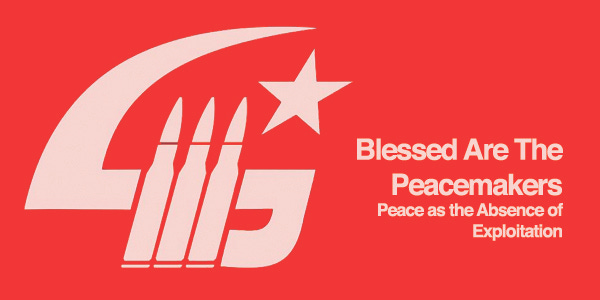Morning Comrades.
There’s a contradiction I’ve wrestled with for a long time, one that I suspect many people trying to build a revolutionary, communist consciousness also face. It’s the contradiction of feeling an instinctive rejection of religion and for good reason. I’d imagine the majority of us was raised in some sort of degree of religion, shook it off and as time moves on starts thinking about it differently. I, for my case, was raised in a very conservative Catholic house only to reject it utterly as soon as I could. Organised religion has, for centuries, been weaponised to justify war, colonialism, exploitation, the brutal rule of kings, landlords, and bosses. The church (whether Christian, Catholic, Orthodox, or Protestant), the synagogue, the mosque, all have at different moments aligned with empire, with conquest, with the worst forms of patriarchal and class oppression. Karl Marx’s old line about religion being “the opium of the people” sticks around for a reason: religion has pacified the exploited, not by freeing them, but by convincing them that their suffering was sacred, necessary, or deserved.
So it makes sense that many communists and revolutionaries have, in response, rejected these ancient texts wholesale. Why should we, fighting for liberation in the here and now, care what an old religious book says about peace or justice, when popes crowned emperors, priests blessed slave ships, and mullahs today often bless oil wealth and dictatorship?
It’s just not that simple. The more seriously you take the project of changing the world, the more you’re forced to confront the fact that religion despite all its institutional crimes has also been one of humanity’s deepest, richest reservoirs of ethical thought, rebellion, and hope. Oppressed people didn’t invent these religions in order to oppress themselves; they reached for God, for meaning, for justice, because they were already crushed by systems of violence far older than any revolutionary theory. And in those old texts, the Bible, the Torah, the Qur’an are buried the ethical blueprints of solidarity, compassion, justice, and, crucially, peace.
It’s easy to dismiss those lines from scripture as outdated or naive, but when I read “Blessed are the peacemakers: for they shall be called the children of God” the other day by accident, I don’t just see a Christian slogan. I see a thread stretching from those early Christian gatherings of slaves and outcasts in the Roman Empire all the way to the workers’ soviets of Petrograd, the landless peasants of Latin America, and the international anti-war movements that rose against imperialism in the 20th century.
The contradiction, then, isn’t so much personal as historical. We don’t have to believe in the divine to recognise that these ancient texts are part of the collective political inheritance of the oppressed. The ethical vision they offer isn’t opposed to communism, in fact, when you scrape away the layers of institutional dogma and priestly power, you find that many of the most famous religious proclamations are saying something deeply material, even revolutionary: that there should be no war, that wealth should not belong to the few, that the meek deserve the earth, that debts should be forgiven, that the hungry should be fed. As I have always, repeatedly and loudly stated, I am utterly against war and always will be, just not in the milquetoast liberal let’s go to brunch way.
That’s why Matthew 5:9 matters in this context. It’s not just a pretty line for a church wall. It’s a radical call to peace, not peace as in treaties or ceasefires, but peace as in the absence of exploitation, the abolition of the system that makes war inevitable in the first place. And when you follow that line through history, you arrive right at the doorstep of revolutionary communism, and its internationalist, uncompromising anti-war stance.
I’ve been meaning to explore that relationship, between the ancient call for peace in religious traditions and the revolutionary, anti-capitalist project of communist pacifism. I’ll argue that communists, far from being enemies of peace, are its most serious and militant advocates, and that the words of Matthew 5:9 line up with the historical, materialist fight for a world where peace is not just hoped for, but finally made real.
We’ll also dig into that tension between Marxism and religion, not to pretend it doesn’t exist, but to show how, historically and politically that contradiction has been addressed, resolved, and sometimes even transformed into one of the revolutionary movement’s sharpest tools.
Because in the end, if you’re serious about building a world without war, you can’t afford to throw away the parts of humanity’s past that speak to that hope, no matter what shape they first took. Blessed are the peacemakers, but only if they’re ready to tear down the systems that make peace impossible.
Keep reading with a 7-day free trial
Subscribe to Black Lodges to keep reading this post and get 7 days of free access to the full post archives.




